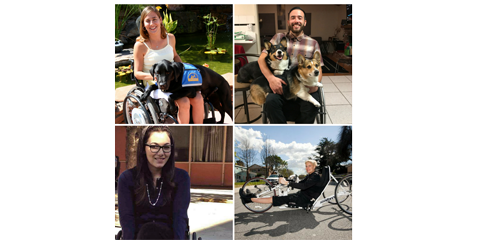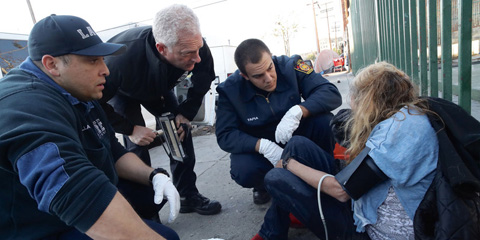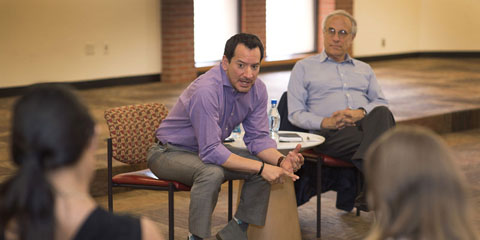News Archive
-

National Nurses Week kicks off with National Nurses Day on May 6th. We’ve compiled a list of ways to celebrate these dedicated professionals.
First instituted in 1953, National Nurses Week celebrates the contributions that nurses have made for the medical profession, and encourages us to recognize and appreciate nurses and nursing students for their tireless work.
Whether you want to put a smile on a colleague’s face or advocate for nurses’ rights across the nation, here are seven different ways that you can honor National Nurses Week.
-

Four of USC’s leading experts on aging convened on April 23 for the Los Angeles Times Festival of Books panel “Living Long or Living Well: Can We Do Both?”
Moderated by Pinchas Cohen, dean of the USC Davis School of Gerontology, the panel featured USC professors from multiple schools for an interdisciplinary conversation about healthy aging.
-

Disparities in access to health care and clinical research have a significant impact on the treatment of minority patients.
-

A population that has received far too little attention from researchers despite facing serious physical, emotional and social issues is finally emerging from the shadows thanks to a new initiative at the USC Suzanne Dworak-Peck School of Social Work.
-

A new model of care holds promise in improving the physical health of people with mental illness, new research finds, potentially increasing the life span of individuals who typically die 25 years earlier than the general population.
-

Americans today live shorter, sicker lives than people in most other developed countries.
-
Each year, Master of Social Work students spend their Spring Break on national and global immersions in communities very different from their own. These experiences range from learning about policy making in Washington, D.C., to seeing the impact of human trafficking first-hand in the Philippines.
-

“Social workers are so valuable. Everybody needs somebody on the front lines, advocating for [them],” said Master of Social Work student Jennifer McCallson.
McCallson and three other MSW students found their own advocates this year through the Swim With Mike fundraiser and USC’s Physically Challenged Athletes Scholarship Fund, which help physically challenged athletes obtain a quality education. Since its founding in 1981, Swim With Mike has raised more than $18 million for scholarships.
-

The majority of calls the Los Angeles Fire Department (LAFD) receives are misdirected — only 1 percent of calls are associated with actual fires. Many calls come from people seeking treatment for nonurgent conditions, resulting in the wide misuse of emergency medical services (EMS), which reduces the quality of care received by those in serious need.
-

“When I started in the nonprofit sector 15 years ago, I hadn’t studied social work. I had studied philosophy. But then I had to do budgets and outreach, and realized I needed a social worker, a budget person,” said California State Assembly Speaker Anthony Rendon to a group of students, staff and faculty from the USC Suzanne Dworak-Peck School of Social Work.
“This program at USC, in particular, produces people who know how to apply solutions to real problems.”